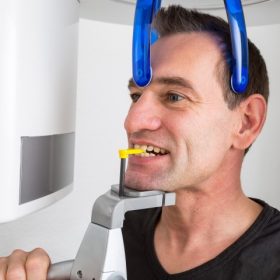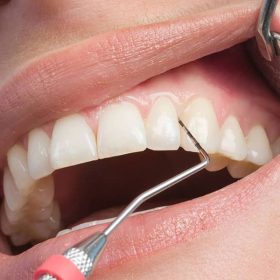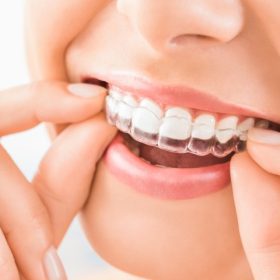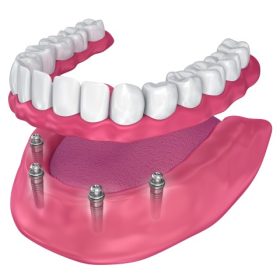Dental Prosthetic Treatments

Dental prosthetic treatments are artificial teeth used to help individuals who have lost or damaged their natural teeth to restore their dental function and improve their aesthetic appearance. Dental prosthetics are customized according to the patient’s oral structure and needs, and they are a widely used treatment option.
Dental prosthetics can be categorized into two main types:
- Fixed Dental Prosthetics:
-
- Crowns: These are porcelain or metal caps used to repair or strengthen a single tooth.
- Bridges: Prosthetics used to support and fill the gap of one or more missing teeth by anchoring to adjacent natural teeth.
- Dental Implants: These are titanium screw-like artificial tooth roots that are surgically placed into the jawbone. They provide a strong anchor for the prosthetic tooth and offer a natural feel.
- Removable Dental Prosthetics:
-
- Full Dentures: Used when all teeth are missing in either the upper or lower jaw. They are held in place by adhering to the soft tissues of the mouth.
- Partial Dentures: Used when several teeth are missing, and they consist of a metal framework with plastic teeth that attach to the adjacent natural teeth for support.
The use of dental prosthetics involves taking precise measurements of the patient’s oral structure by a dentist to ensure a comfortable and natural fit when wearing them.
Dental prosthetics offer several important advantages, such as:
- Restoring dental function, facilitating activities like chewing and speaking.
- Providing an aesthetically pleasing appearance similar to natural teeth.
- Supporting facial features and improving facial harmony.
The decision to undergo dental prosthetic treatment should be made after a thorough examination and consultation with a dentist. The most suitable type of dental prosthetic should be determined, and the treatment process should be closely monitored by an experienced dental professional.







